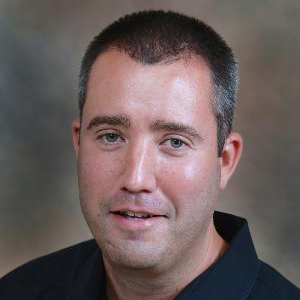The national certification exam as a faculty development experience
If you are considering volunteering to serve on a team involved in the American Society for Biochemistry and Molecular Biology certification exam, I strongly recommend it based on my own experience.

staff members Quira Zeidan, Kirsten Block and Stephanie Paxson prepare the exams
for mailing.
Five years ago, I helped to score a single question for the ASBMB certification exam, which is offered to college juniors and seniors enrolled in ASBMB-accredited programs and is designed to test their understanding of the core competencies in biochemistry and molecular biology. Little did I know the effect this activity would have on my thinking and the impact it would have on my own test question writing. Since that time, I have worked each year on small committees of bright, motivated faculty to write new questions for the ASBMB exam and to create and refine rubrics for existing questions.
Working with the ASBMB has allowed me to take a hard look at three important components of written assessment: writing questions, writing rubrics and scoring answers. My classroom instruction is guided mainly by how I want students to think their way through an answer. Without each component of the written assessment aligning and synergizing with the others, there is a risk that the questions are not fair, not actually assessing what I had hoped or not requiring the students to think. Working on these exam committees has changed my mindset, so I am more aware of these issues when working on my own exams.
I have learned a few things from colleagues who are members of or work at the ASBMB. These lessons ensure fairness to the student, promote consistency in grading, and bring deserved attention to question and rubric details.
Lesson 1: The person or committee that writes an exam question ideally should not be the one to write the rubric or score the answers. When we write a question, we are already biased toward an answer.
Lesson 2: The exam should be anonymous when graded, especially if you know the student.
Lesson 3: Exams should be scored by more than one scorer and interrater reliability should be calculated and addressed.
Lesson 4: Questions should be reevaluated and improved after each time the test is administered.
Lesson 5: Each question should be graded from all exams at the same time.
Lesson 6: Questions should target different levels of Bloom’s taxonomy to create an exam that also can be a useful teaching diagnostic tool. We should aspire to teach students to analyze, evaluate and create, so categorizing questions in this manner will diagnose how well we are teaching these skills.
The ASBMB in each of the last two years scored almost 1,000 exams, so it is a large-scale process. The ideas above can be applied on a smaller scale in your department. For example, choose your toughest question to grade and ask a few colleagues to score an answer to check if interrater reliability is an issue. Instead of asking a peer to take one of your exams, ask them to take a five-question quiz containing the five new questions you are vetting for this year's final. Also, another professor teaching the same subject could help you with a rubric to make sure it is objective, not overly biased toward what you remember saying in lecture.
Written assessments are difficult to develop, and we should develop them together.
Enjoy reading ASBMB Today?
Become a member to receive the print edition four times a year and the digital edition monthly.
Learn moreFeatured jobs
from the ASBMB career center
Get the latest from ASBMB Today
Enter your email address, and we’ll send you a weekly email with recent articles, interviews and more.
Latest in Careers
Careers highlights or most popular articles

From humble beginnings to unlocking lysosomal secrets
Monther Abu–Remaileh will receive the ASBMB’s 2026 Walter A. Shaw Young Investigator Award in Lipid Research at the ASBMB Annual Meeting, March 7-10 in Washington, D.C.

Chemistry meets biology to thwart parasites
Margaret Phillips will receive the Alice and C. C. Wang Award in Molecular Parasitology at the ASBMB Annual Meeting, March 7-10 in Washington, D.C.

Decoding how bacteria flip host’s molecular switches
Kim Orth will receive the Earl and Thressa Stadtman Distinguished Scientists Award at the ASBMB Annual Meeting, March 7–10, just outside of Washington, D.C.

Defining JNKs: Targets for drug discovery
Roger Davis will receive the Bert and Natalie Vallee Award in Biomedical Science at the ASBMB Annual Meeting, March 7–10, just outside of Washington, D.C.

Upcoming opportunities
No matter where you are in your career and what future path you aspire to, everyone needs leadership skills. Join ASBMB for practical strategies for building and practicing leadership skills.

Close out ASBMB 2026 with a bang
The closing reception of the 2026 ASBMB Annual Meeting will be held at the Torpedo Factory Art Center in Alexandra, Virginia.

